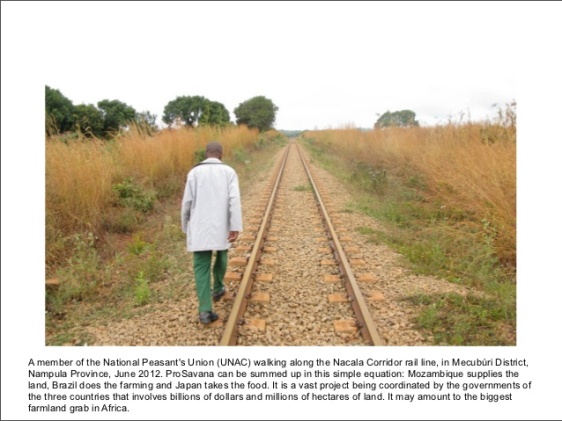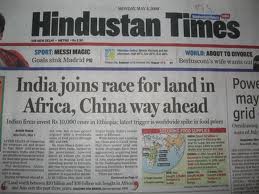 [While some of the Nobel Peace Laureates over the years have made genuine and significant contributions to the people’s movements against war, in recent years the awards given to such shameful imperialist masters of warmaking as Barack Obama and the European Union have destroyed the legitimacy and credibility of the Nobel Peace Prize. For all to see, the award has come to be a cynical endorsement of imperial power. Only a bold endorsement of a very selfless and sacrificial activist against war crimes, who has earned the enmity of imperialists everywhere, may restore the respect for the Nobel Peace Prize. We do not believe the Nobel Committee has the capability to make such a historic move. But a growing and passionate number are pressing them to make this move: Award Bradley Manning the Nobel Peace Prize this year. — Frontlines ed.]
[While some of the Nobel Peace Laureates over the years have made genuine and significant contributions to the people’s movements against war, in recent years the awards given to such shameful imperialist masters of warmaking as Barack Obama and the European Union have destroyed the legitimacy and credibility of the Nobel Peace Prize. For all to see, the award has come to be a cynical endorsement of imperial power. Only a bold endorsement of a very selfless and sacrificial activist against war crimes, who has earned the enmity of imperialists everywhere, may restore the respect for the Nobel Peace Prize. We do not believe the Nobel Committee has the capability to make such a historic move. But a growing and passionate number are pressing them to make this move: Award Bradley Manning the Nobel Peace Prize this year. — Frontlines ed.]
——————————–
By David Swanson
26 March, 2013
Warisacrime.org
Whistleblower Bradley Manning has been nominated for the Nobel Peace Prize , and he should receive it.
 No individual has done more to push back against what Martin Luther King Jr. called “the madness of militarism” than Bradley Manning. The United States is the leading exporter of weapons and itself spends as much preparing for more wars as the rest of the world combined. Manning is the leading actor in opposition to U.S. warmaking, and therefore militarism around the world. What he has done has hurt the cause of violence in a number of other nations as well.
No individual has done more to push back against what Martin Luther King Jr. called “the madness of militarism” than Bradley Manning. The United States is the leading exporter of weapons and itself spends as much preparing for more wars as the rest of the world combined. Manning is the leading actor in opposition to U.S. warmaking, and therefore militarism around the world. What he has done has hurt the cause of violence in a number of other nations as well.
And right now, remaining in prison and facing relentless prosecution by the U.S. government, Manning is in need of the Nobel Peace Prize.
Alfred Nobel’s will left funding for a prize to be awarded to “the person who shall have done the most or the best work for fraternity between nations, for the abolition or reduction of standing armies and for the holding and promotion of peace congresses.”
The intent of the prize was to fund this work. As a result of enormous legal expenses, Bradley Manning is in need of that funding, unlike some other peace prize recipients. In addition, his secret trial — with a potential death sentence — could use all the attention that can be shined on it.
The people of the United States and the rest of the world have learned more about the intentions of the U.S. government from Bradley Manning than from anyone else. “Thanks to Manning’s alleged disclosures, we have a sense of what transpired in Iraq and Afghanistan. We have an image of how Washington operates in the world,” author Chase Madar wrote in his book about Manning’s whistleblowing.
“Thanks to those revelations we now know just how our government leaned on the Vatican to quell opposition to the Iraq War. We now know how Washington pressured the German government to block the prosecution of CIA agents who kidnapped an innocent man, Khaled El-Masri, while he was on vacation. We know how our State Department lobbied hard to prevent a minimum wage increase in Haiti, the hemisphere’s poorest nation.”
Manning revealed a secret U.S. war in Yemen, U.S. records of massive civilian deaths in Iraq and Afghanistan, video of a U.S. helicopter attack on civilians and their rescuers in Baghdad, and facts about the corruption of numerous governments including those of the United States, Tunisia, and Egypt. In those last two nations Manning’s revelations contributed to nonviolent pro-democracy movements. Continue reading
 Asuncion, Mar 26 (Prensa Latina) More than 200 Paraguayan police with backup helicopter support evicted dozens of peasant families who were occupying a farm in the department of Canindeyu, destroying their homes and crops.
Asuncion, Mar 26 (Prensa Latina) More than 200 Paraguayan police with backup helicopter support evicted dozens of peasant families who were occupying a farm in the department of Canindeyu, destroying their homes and crops.









